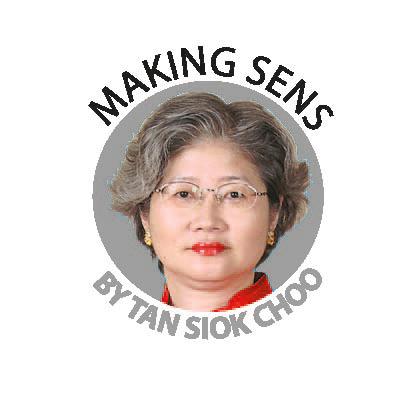INDONESIA President Joko Widodo’s recent Cabinet line-up is notable for two reasons. First, the selection of Cabinet ministers highlights the targets that Widodo, better known as Jokowi, hopes to achieve in his second and final term of office.
For the next five years, Jokowi’s focus includes developing the country’s human resources, creating jobs as well as empowering small, micro and medium enterprises.
Second, and less noticed, in selecting two former generals as ministers – Prabowo Subianto in defence and Fachrul Razi in religious affairs – Jokowi has shown remarkable political finesse.
Prabowo’s appointment is controversial for several reasons. First, he is Jokowi’s political rival. In April this year and in 2014, he ran against Jokowi for the Indonesian presidency – and lost twice.
Second, Prabowo has been accused of several human rights violations in Indonesia. In 1998, as Army Special Forces Commander (Kopassus), Prabowo admitted abducting nine activists (whom he claims were later released) in a futile bid to keep his father-in-law, the late president Suharto, in power. Currently, Prabowo heads Gerinda, the third largest political party in parliament with 78 seats.
Third, as defence minister, Prabowo will helm a ministry with the biggest allocation in the 2020 state budget – a hefty US$9 billion.
In appointing Prabowo as defence minister, the 58-year-old Jokowi appears to be following the precept of Michael Corleone who succeeded his father as Mafia chief in the novel The Godfather Part II: keep your friends close and your enemies even closer.
Overlooked amid the furore over Prabowo’s appointment was Jokowi’s selection of Fachrul. As deputy chairman of an officers’ council, Fachrul dismissed Prabowo from the military 21 years ago, Amy Chew noted in her article in the South China Morning Post.
Appointing Prabowo and Fachrul is a “masterful and very Javanese power play of balancing friends, foes and different interests within (Jokowi’s) coalition”, Chew notes.
Designating a general as religious ffairs minister suggests Jokowi sees rising Islamic radicalism in the world’s most populous Muslim country as a security issue.
Terrorist attacks in Indonesia are often perpetuated by home-grown outfits with links to international militant groups, Chew adds. Earlier this month, Security Minister Wiranto was knifed in an attack.
Described as quiet, unassuming and loyal, Fachrul is from Aceh, the only province that has enacted Islamic law. Equally pertinent, Jokowi has known Fachrul since 1997.
Equally notable were two other Cabinet appointees: Nadiem Makarim in Education and Culture as well as Eric Thohir in State-owned Enterprise. Not only is Nadiem a successful entrepreneur, now aged 35 years, he is also the youngest Cabinet minister.
In 2010, Harvard-educated Nadiem co-founded Gojek. Six years later, this ride-hailing outfit became Indonesia’s first unicorn – defined as a company exceeding US$1 billion in value. Gojek later expanded to become Indonesia’s first decacorn company worth more than US$10 billion. Since its inception, Gojek has signed two million driver partners and 400,000 merchants.
Choosing Nadiem to head the Education and Culture Ministry suggests Jokowi sees the biggest challenge is ensuring students in the republic obtain a quality education that will equip them with the appropriate qualifications to power Indonesia’s fast-expanding digital economy. Currently, the republic has the fifth-largest number of internet users worldwide.
Jokowi’s brief to his new education and culture minister was simple: develop human resources to work, to link and to match education with industry.
Like Nadiem, Erick is also a highly-successful entrepreneur. Erick’s Mahaka Group owns media outlets, including the Republika newspaper, a radio station GenFM and television station JakTV.
As state-owned enterprises minister, Erick will oversee 115 state-owned companies, managed in varying degrees of efficiency. His task is “to lead the overseas expansion of Indonesian state-owned companies,” Jokowi said.
More than one-third of Jokowi’s first Cabinet were reappointed. Particularly welcome for economists and bankers was the re-appointment of the widely-respected former World Bank managing director Sri Mulyani Indrawati as finance minister.
During Jokowi’s first term, Mulyani oversaw Indonesia’s economy expanding at a steady pace, averaging 5% growth from 2014 to 2018. She successfully trimmed the budget deficit to an enviable 1.76% of gross domestic product (GDP) last year – well below the 3% ceiling.
GDP is the value of all goods and services produced within a country in one year.
Many commentators and analysts gave Jokowi’s second-term Cabinet appointees a mixed score. However, investors in the stock market and currency traders focused on Mulyani’s reappointment and the inclusion of several successful entrepreneurs. Their immediate reaction was positive.
On Oct 24, one day after the Onward Indonesia Cabinet line-up was announced, the Jakarta Composite Index rose by 32.3 points to 6,257.81 compared with the previous day’s close while the rupiah strengthened against the greenback by 0.19% to 14,032.
Opinions expressed in this article are the personal views of the writer and should not be attributed to any organisation she is connected with. She can be contacted at siokchoo@thesundaily.com














